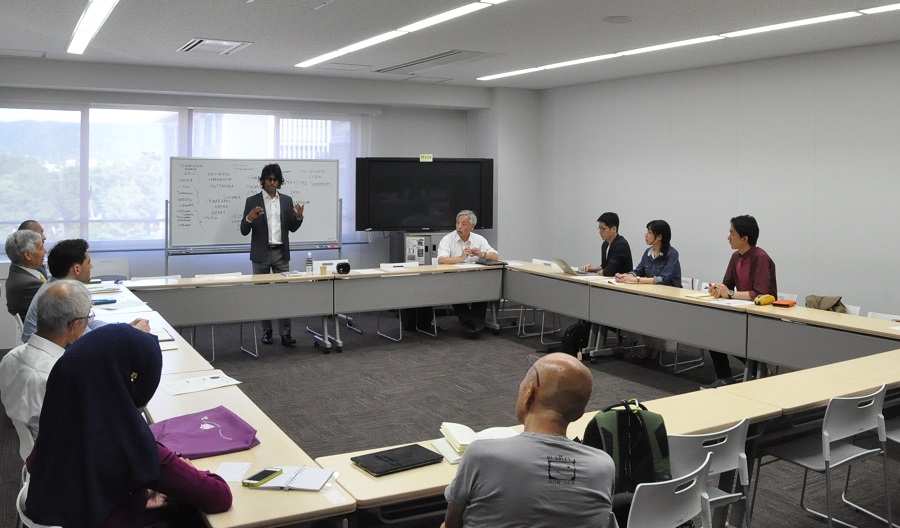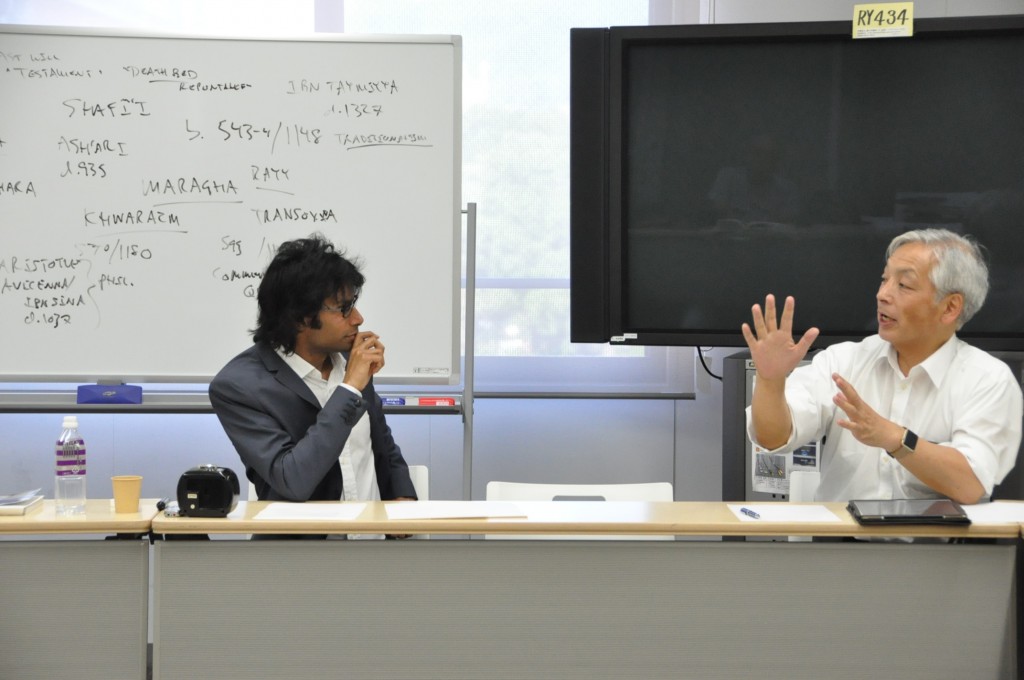Center for Interdisciplinary Study of Monotheistic Religions(CISMOR)Doshisha University
> Public Lectures > FAKHR AL-DIN AL-RAZI’S ROLE IN THE ISLAMIC INTELLECTUAL TRADITIONPublic Lectures
Sharia Studies
FAKHR AL-DIN AL-RAZI’S ROLE IN THE ISLAMIC INTELLECTUAL TRADITION
| Date: |
2017/06/16 15:00-16:30 |
|---|---|
| Place: | Room RY434, Ryoshin-kan, Imadegawa Campus, Doshisha university |
| Lecture: |
Tariq Jaffer (Associate Professor of Religion, Amherst College) |
| Summary: | |
|
In the first part of his lecture, I spoke about Fakhr al-Din al-Razi (d. 1210), an exceptionally learned scholar who was born in Iran and spent most of his life traveling throughout Central Asia. I outlined the author’s life and travels, describing how Razi debated with representatives from diverse intellectual movements in Central Asia, including the Muʿtazila, the Maturidis, the Karramites, and others. I further described Razi’s education by explaining that Razi was inculcated with both the rational sciences (the divisions of philosophy and science) and traditional sciences (Qur’an, tafsir, law, theology, and Sufism/mysticism. Having outlined Razi’s education, I then described the principal ways that Razi organized and systematized the rational and traditional sciences into his commentary on the Qur’an. I explained that the way that Razi organized and systematized knowledge in his commentary was a major innovation in the Islamic intellectual tradition, and that it was an attempt to recast the way that Muslims went about interpreting the Qur’an. To highlight this point, I briefly compared Razi’s methodology with the ways that earlier commentators, especially Tabari and Zamakhshari (who greatly influenced Razi), went about interpreting the Qur’an. While the former mainly deployed prophetic traditions to interpret the Qur’an (having spent his life collecting and studying prophetic traditions), the latter aimed to harmonize the Qur’an with the implications of human reason. Razi inherited both of these methods, although he went much further by synthesizing the results of Muʿtazili theology with the Hellenistic worldview of Muslim philosophers. In so doing, he altered the fundamental worldview of Sunni theology. In the second part of his lecture, I discussed Razi’s Testament or Last Will. I argued that the document can help us understand Razi’s disposition toward the Qur’an, his piety, and the aims of the works that he wrote in the rational and traditional sciences. I first discussed the various ways that Razi’s Testament or death-bed repentance, which has been preserved in Islamic sources, has been interpreted in medieval Islam and by Western scholars. I explained that the death-bed repentance in which a person repented for having occupied himself with the rational sciences was a recurring theme among Muslim thinkers. I then explained that the traditionalist interpretations of Razi’s Testament betray a prejudice, and I discussed how the great traditionalist Ibn Taymiyya reinterpreted Razi’s statements about his piety and the aims of his works. I argued that Ibn Taymiyya used a traditionalist criterion to make a case for Razi’s heresy. He did so by interpreting the Testament to mean that Razi himself considered strict adherence to rationalism and Islamic piety as incompatible. I pointed out that the document could be interpreted to mean that Razi saw rationalism and strict adherence to the Qur’an and Sunna as perfectly compatible. And I concluded that Razi’s principal aim in his Qur’anic commentary was to show how the conclusions reached through human reason can be harmonized with the content of the Qur’an. Tariq Jaffer |
|
|
※This session is open for students and academics ※Presentation will be provided in English only, no interpretation. ※If you would like to participate in this session, please send an email to the CISMOR Office in advance rc-issin■mail.doshisha.ac.jp (Please retype ■ to @) |
|
|
20170614poster |
|
[Link]

